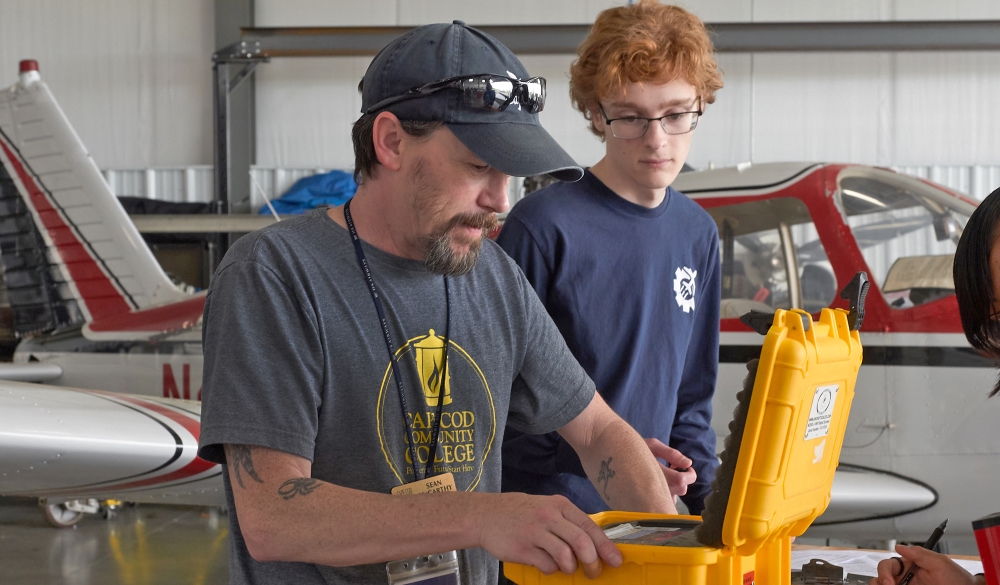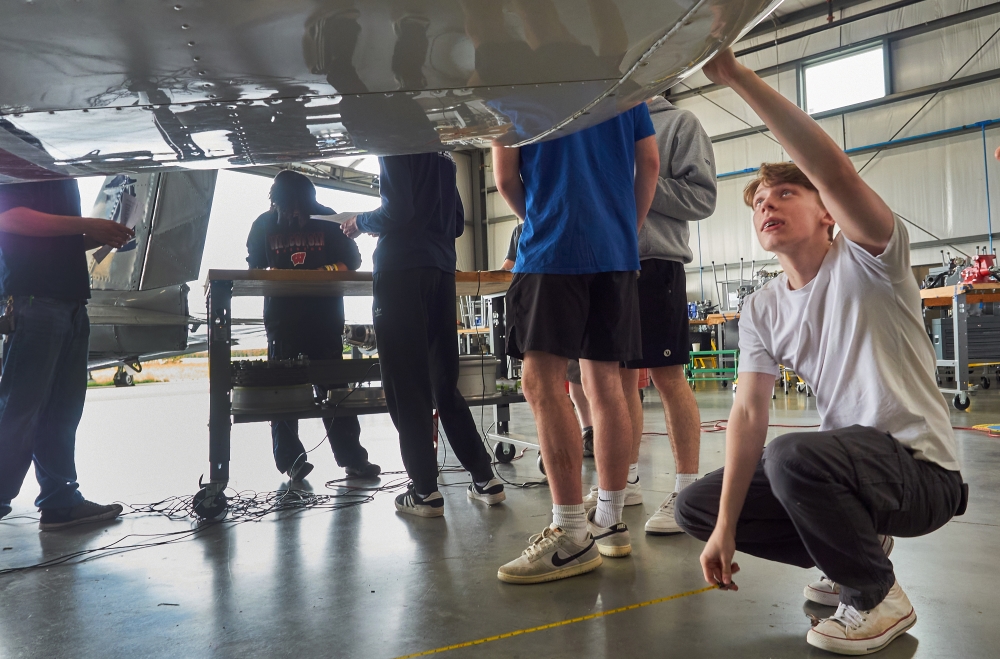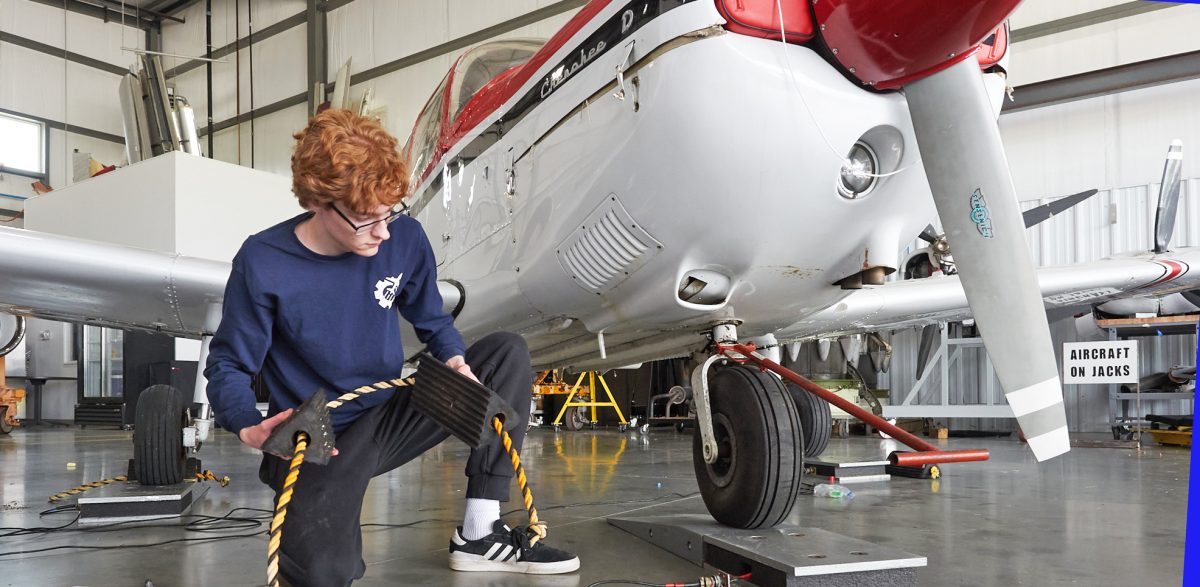In a hangar at Plymouth Municipal Airport, students from Rising Tide Charter Public School were pushing and pulling a Piper Cherokee onto three scales, one for each of the plane’s landing gears.
“We spend a lot of time on the weighing of planes,” said Jack Connolly, a junior.
Planes are weighed to make sure they don’t exceed their maximum weight limit and to determine how weight is distributed.
The 14 students from the Plymouth college preparatory charter school are the first group in a program that seeks to teach them scientific concepts by working on aircraft.
“The hands-on process, especially here in the hangar, has been really cool,” said Cameron Sadler, another junior. “You get to see not only the aircraft themselves, but also the tools needed for maintenance.”
The Aviation Maintenance Pathways Program is a collaboration between Rising Tide and Cape Cod Community College. The Cape Cod Community College Aviation Maintenance Technology program normally runs two years for full-time college students who earn an Applied Sciences associate degree in in Aviation Maintenance Technology. But Rising Tide has worked out a program that allows its students to complete the first year of that program over two years of high school. Upon graduation, they can complete the program at the college.
Aviation maintenance technology courses are in high demand at Cape Cod Community College.
Sean McCarthy, a part-time aviation maintenance technology instructor at the college who was teaching the Rising Tide students on a recent day at the airport in West Plymouth, anticipates that the full-time, two-year college program will enroll 125 full-time students this fall.
McCarthy said hundreds of thousands of jobs in aviation maintenance are expected to open in the coming decade as more veteran mechanics retire. He said some companies, including Cape Air, hire students as apprentices while they are still in school. Mechanics in Alaska can earn up to $130,000 in their first year upon graduation, he said. In this area, $55,000 is a more typical starting income, he said.

Michael O’Keefe, head of school at Rising Tide, said the program appeals to a range of students.
“Some kids might want to go complete the year post-high-school version of the program, do one more year and then be immediately into the workforce in aviation maintenance,” O’Keefe said. Others, he said, could work it into an education that leads to four-year college. “I really love that it fits our school culture of high expectations for all kids.”
Connolly and Sadler are thinking of pursuing engineering at a four-year college. Sadler is considering eventually going on to earn a graduate degree in aeronautical engineering.
“Engineering is something I’d like to focus on, especially aeronautical engineering, because I find that fascinating, and there’s lot to do in the field,” Sadler said.
Connolly is interested in exploring mechanical engineering, but also computers.

“I like the mechanical process of engineering, like figuring out how engines work, so I thought it would be interesting to do this program to see if I enjoy other aspects of it,” said Connolly.
This year, students spent three hours a week in class at Rising Tide and 90 minutes either on Zoom or in the hangar with an aviation maintenance instructor. Next school year, they will spend two afternoons a week at Rising Tide and two afternoons a week at the hangar.
“The highlight of this program is being able to work with the planes,” Connolly said. “We started an engine. It’s very interesting to see all the moving parts to it. I learned a lot about what goes into the science behind how there’s two gallons of unusable fuel that’s at the bottom as the plane is flying, or how a lot of the fluid pipes work.”
“The physics behind all this stuff is really interesting,” said Sadler, and the explanation and understanding we got from this course is invaluable.”
Fred Thys can be reached at fred@plymouthindependent.org

